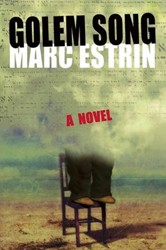With Captivity, translated from the Hungarian by Tim Wilkinson, György Spiró introduces English readers to a visceral new form of epic history. Here mountains of trivia form vivid landscapes and academic minutiae open windows into the soul of a forgotten age. It is a work of fiction, though, and it is hilarious.
Our unlikely Odysseus, half-blind Gaius “Uri” Theodorus, has resigned himself to an unfulfilling life in the “Far Side” of first-century Rome when his stern father unexpectedly entrusts him with the future of their family and the wealth of their community on a dangerous quest to Jerusalem. In the first episode, Uri experiences Candide-esque ups and downs (sharing haute cuisine with Pontius Pilate and a prison cell with a certain rebellious Nazarene) while the reader accomplishes what feels only in retrospect like a course in Jewish history.
Capitivity requires a commitment, not just to its impressive page length — a bookcase trophy with gravitas — but also to a difficult hero who makes all the wrong moves through an infinity of unfortunate events. It is possible to lose track of decisions that cost Uri his fortune, let alone his sandals. The payoff, however, is significant: each trial humanizes a protagonist who, at the center of so many pivotal events (such as the earliest pogrom, in Alexandria, 32 CE), might otherwise slip into allegory. Uri’s experience is less a metaphor for the saga of the Jewish people than a lens through which to experience a piece of it.
Spiró’s serious accomplishment is to challenge the chilling observation, popularly attributed to Stalin, that “one death is a tragedy and one million deaths a statistic” by breathing life into the neglected statistics of a magnificent — and terrifying, brutal — age. His Melvillian digressions into topics as varied as the observation of halakha in Rome, the intricacies of Alexandrian tax code, and the practice of rural Judean carpentry immerse the reader in an authentic experience. Bloody political intrigue also features in Captivity, but Spiró more often chooses the realism of quotidian bureaucratic nonsense.
Goofy and lacking a political agenda, Captivity is nevertheless an intently philosophical book. Where American novels like Ben Hur have attempted to dramatize the period as a Christian morality play, Captivity expresses historical ideas authentically, and explores from contemporary perspectives how Christianity and the First Jewish-Roman War (66 – 77 CE) both arose from the clash of imperialism and monotheism. It is unsurprising that Spiró’s friendliest historical portrait is of the Hellenistic Jewish philosopher and diplomat Philo of Alexandria, who was interested in reconciling Jewish and Greek teachings.
As an award-winning author, Spiró displays predictable creativity, but the real power of Captivity is the ability the extensive historical detail lends the reader to inhabit and empathize with ancient life. It is difficult to imagine a more entertaining way to realize so much data, and it is wonderful that Spiró has managed such an accomplishment. His technique is a welcome innovation for historical fiction in general, and perhaps the drollest scholarly introduction to the first century yet.
Related Content:





